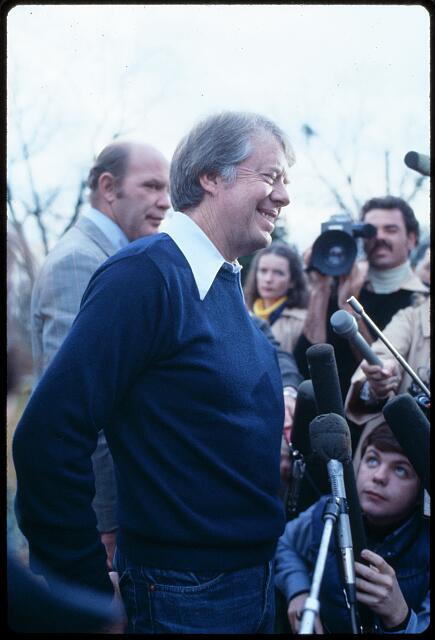President Jimmy Carter is widely recognized for his remarkable achievements and tireless dedication to humanitarian causes around the world. Serving as the 39th President of the United States from 1977 to 1981, Carter’s efforts in promoting peace, equality, and justice have left an indelible mark on our society. This article explores the extraordinary humanitarian endeavors of President Jimmy Carter, highlighting his global impact and unwavering commitment to making the world a better place.
Building Homes and Hope:
One of the most notable contributions of President Jimmy Carter to humanitarian efforts was his involvement with Habitat for Humanity. Since leaving office, Carter and his wife, Rosalynn, have actively participated in building homes for those in need, both in the United States and abroad. Through their personal involvement and the establishment of the Carter Work Project, the Carters have helped build over 4,000 houses in 14 countries, providing shelter and hope to countless families.
Promoting Peace and Diplomacy:
Carter’s commitment to peace and diplomacy is evident in his role as a mediator and negotiator in various international conflicts. Notably, his greatest achievement came in 1978 when he facilitated the historic Camp David Accords, a peace treaty between Egypt and Israel. This milestone achievement not only demonstrated Carter’s diplomatic prowess but also set an example for future peacemaking efforts around the world. Additionally, Carter has been involved in numerous election monitoring missions, promoting democratic values and fair electoral processes in countries such as Haiti, Venezuela, and Liberia.
Fighting Disease and Promoting Health:
Carter’s humanitarian efforts extend to the healthcare sector, where he has played a pivotal role in eradicating diseases and improving global health outcomes. After successfully overcoming cancer, Carter dedicated himself to eradicating neglected tropical diseases (NTDs) through the Carter Center’s Global Guinea Worm Eradication Program. Through his leadership and partnerships with governments and organizations worldwide, the number of reported Guinea worm disease cases has dropped from 3.5 million in 1986 to just two reported cases in 2020, bringing humanity one step closer to its eradication.
Advocating for Human Rights:
Recognizing the importance of human rights, President Carter established the Carter Center, an organization dedicated to promoting and protecting human rights worldwide. The Carter Center has been instrumental in advocating for free and fair elections, monitoring human rights abuses, and facilitating dialogue between conflicting parties. Carter’s dedication to human rights is exemplified by his involvement in negotiating the release of political prisoners, working to end apartheid in South Africa, and advocating for women’s rights globally.
Addressing Poverty and Hunger:
President Carter has consistently addressed poverty and hunger through initiatives aimed at empowering individuals and communities. His work through The Carter Center’s Global Development Initiative has focused on improving agriculture, providing access to clean water, and enhancing education in impoverished regions. By championing microfinance programs and encouraging sustainable agricultural practices, Carter has helped alleviate poverty and food insecurity for countless individuals worldwide.
President Jimmy Carter’s humanitarian efforts have made an enduring global impact, showcasing his unwavering commitment to creating a better world. Through his involvement with Habitat for Humanity, promotion of peace and diplomacy, fight against disease, advocacy for human rights, and dedication to addressing poverty and hunger, Carter has transformed lives and inspired generations to take action. His legacy serves as a testament to the power of compassion, perseverance, and the ability of one person to make a significant difference in the lives of many. As we reflect on Carter’s remarkable contributions, we are reminded of the potential each one of us has to create positive change and help build a more just and compassionate world.
